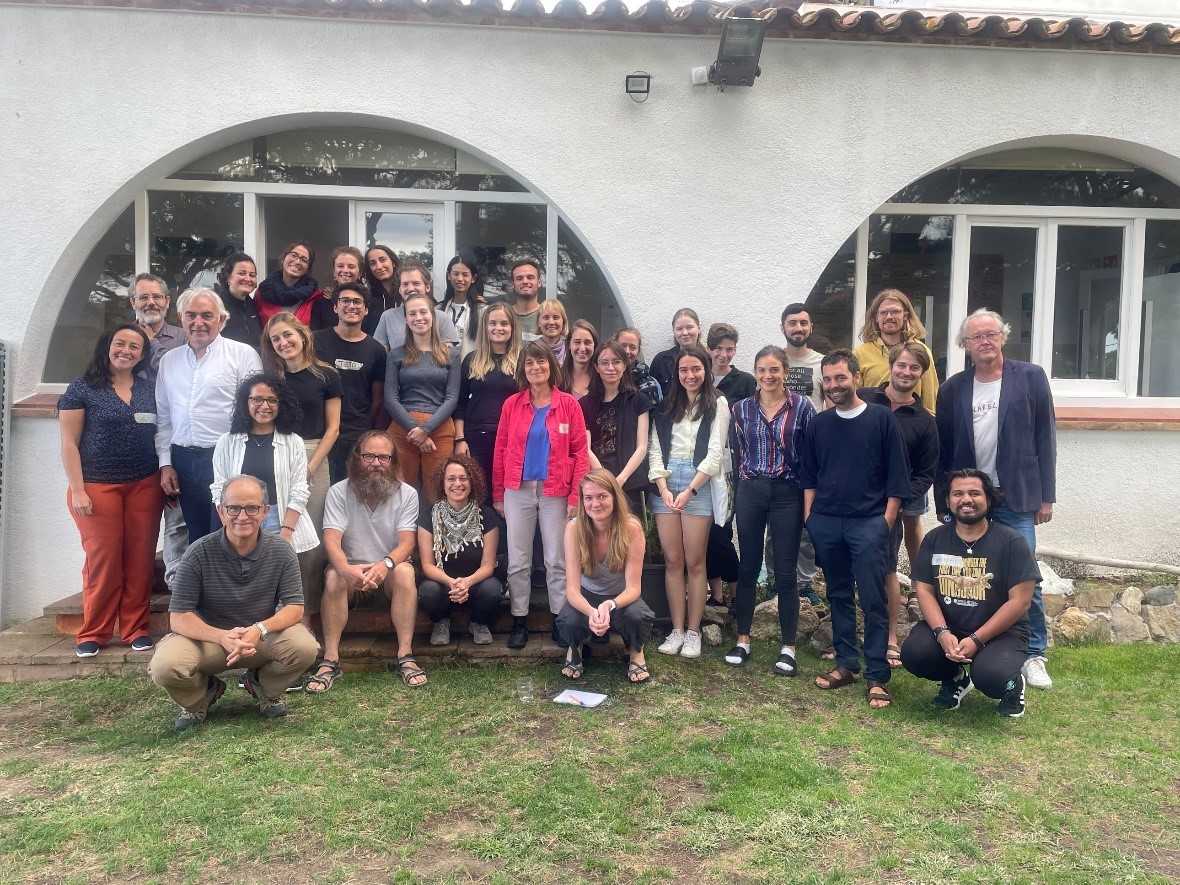In the last week of September 2022, 27 master and PhD students came together in the small beach town of Llançà on the Spanish Costa Brava. They learned about the basics and challenges of transdisciplinary research projects using the example of land use conflicts on the ground in the Alt Empordà region. An exciting and enriching start of the Summer School cooperation between the tdAcademy team at ZTG and the ISST of the Universitat Politècnica de Catalunya for all participants.
The Summer School was developed and organized by Josefa Kny, Martina Schäfer (both tdAcademy/ZTG), Gemma Tejedor and Jordi Segalàs (both ISST/UPC). The project was developed within the framework of Gemma Tejedor's tdAcademy Fellowship at ZTG.
Transdisciplinary research and practice are about bringing together different perspectives of actors from science and society in order to contribute to the solution of real-world problems. To achieve this in the context of a one-week summer school seemed presumptuous to us, the organizers of ZTG and ISST, and yet we did not want to remain in pure theory. Thanks to the established contacts of the UPC researchers in the Alt Empordà region, we had the opportunity to deal with a highly topical land use conflict and to hear the voices of different actors from conservation, agriculture and activism.
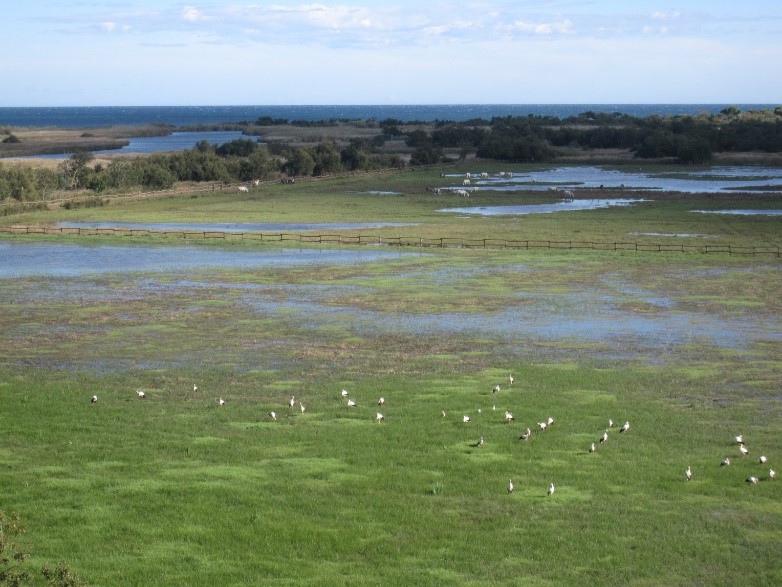
Since the 1970s, the scenic beauty of the region has led to increasingly intensive development primarily with vacation accommodations, most of which are vacant in winter. This development conflicts with the protection of nature and in particular the exceptionally high biodiversity in the region. The latter, however, is currently threatened above all by the planned 500 MW offshore wind energy park off the Gulf of Roses. This is highly controversial, so that local authorities, farmers, tourist associations and nature conservation activists have joined forces in an unusual alliance to protest. We took up these lines of conflict in the Summer School to work on them with exemplary transdisciplinary methods of defining problems and questions, participation, knowledge integration and impact reflection. This concrete practical relevance of the exercises was particularly appreciated by the participants.
“The case study I think was just perfect and extremely related to the topic. The alternating explanations by all the teachers were excellent. I think the school was very useful for my future.”
Together we conducted a constellation exercise to get to know the positions of the actors in the region better. In groups, the participants developed transdisciplinary research questions, participation concepts, and formats for knowledge integration based on thematic inputs. To do this, they additionally received an overview of various collections and toolboxes on transdisciplinary methods. In a role play they discussed the intended and non-intended effects of their developed projects. An open space allowed to deepen open questions and challenges around transdisciplinary research.
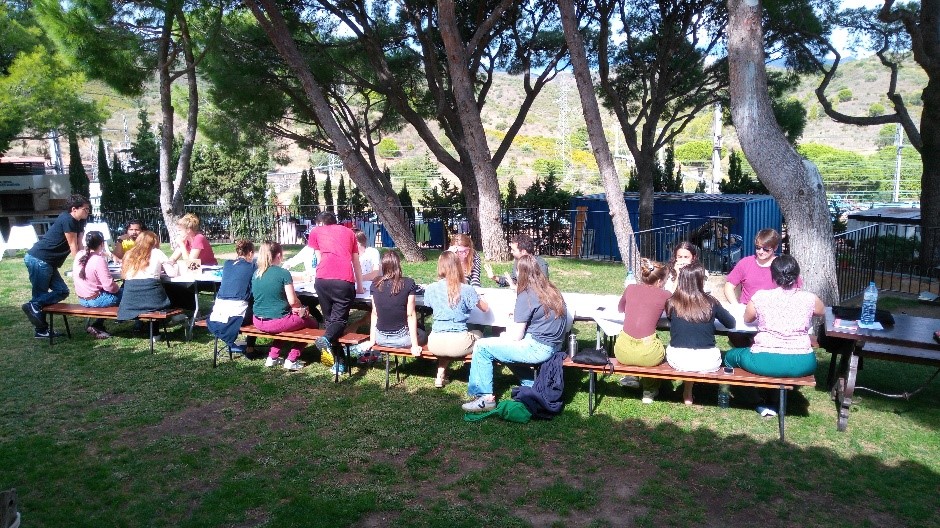
Excursions along the Cami de Ronda and into the Aiguamolls de L'Empordà Nature Park, where local actors accompanied us, helped us to get to know the area and its conflicts better – and to clear our heads between the learning and working sessions. On the last day, the participants had the chance to present their ideas and concepts for transdisciplinary projects in the region to a representative of the local government in the library of the municipality of L'Escala at the Golf de Roses. In addition, the Summer School participants motivated and empowered the students of a participating high school class to engage themselves for a sustainable future in their region.
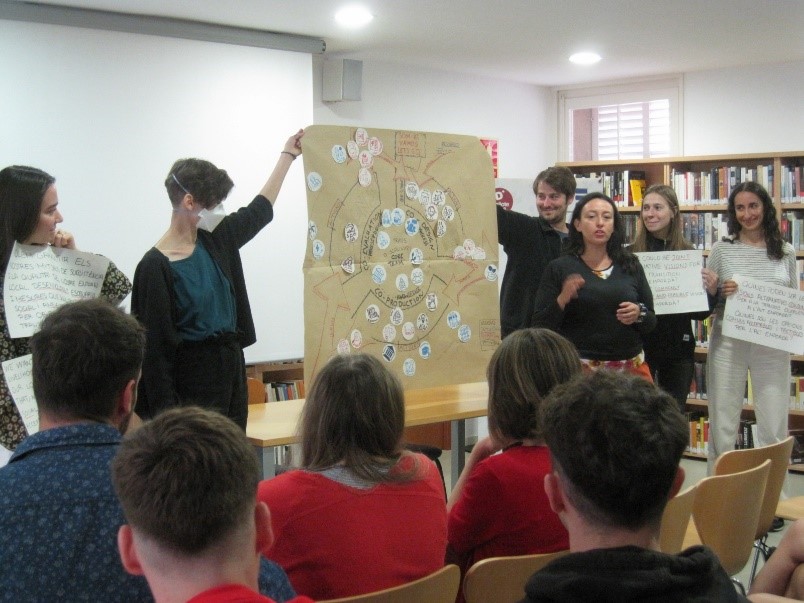
In this first round, due to the number of applicants, an above-average number of participants came from Germany and the UPC. For the next Summer School, we are interested in spreading the announcement better in European networks in order to achieve an even higher diversity of participants. With regard to the professional backgrounds, on the other hand, a good mix and a balanced ratio of master's students and doctoral students was achieved, so that the participants were able to learn a lot from each other. This was also very much appreciated:
I particularly liked…
… “the mix of people coming from very different backgrounds and disciplines. This was very interesting and inspiring.”
… “the diversity of the group, as for gender, nationalities, mentalities and professional/educational backgrounds. This brought a true richness of reflections, discussions and inspirations.”
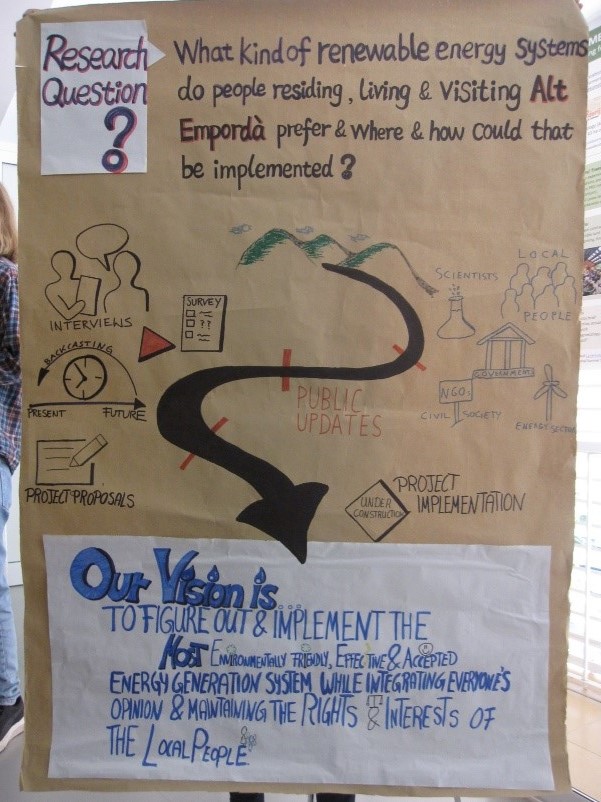
Our program for the week – this has probably already become clear – was full and rich – in both a positive and negative sense. In the written feedback, therefore, we often found the wish for shorter working days, more breaks and, instead, an overall longer duration of the Summer School. We will take this into account in our future planning. As organizers, however, we were particularly pleased by the astonishment of many participants when they heard that this was the first time we had conceptualized and organized such a Summer School together - all in all, it went very well and we look forward to a second round next year.
“All my gratitude for this very enlightening week. Now the time has passed, […] I understand even more how I can apply this knowledge and experience in my future projects. Keep on doing it, this is a truly valuable experience.”
